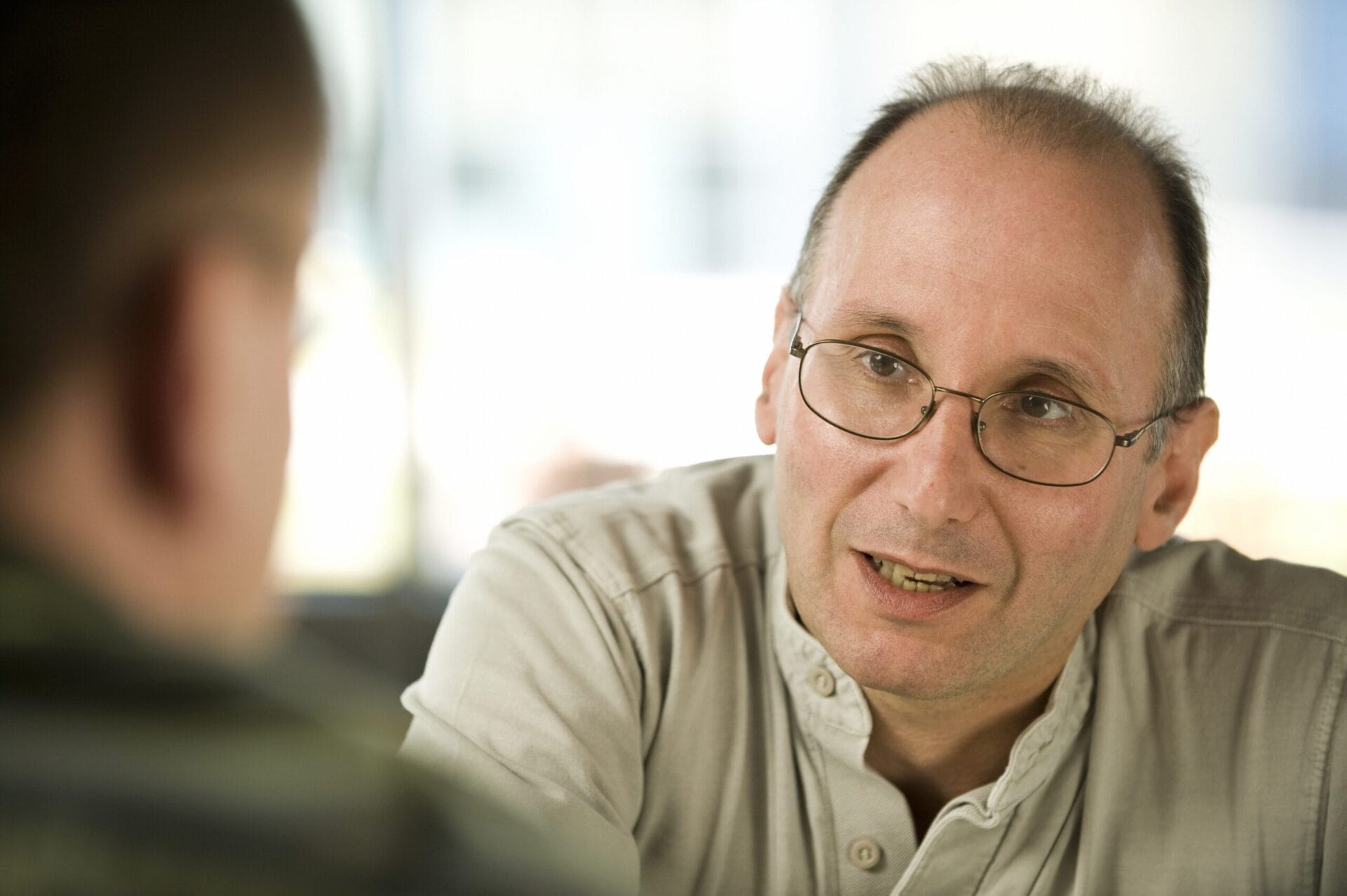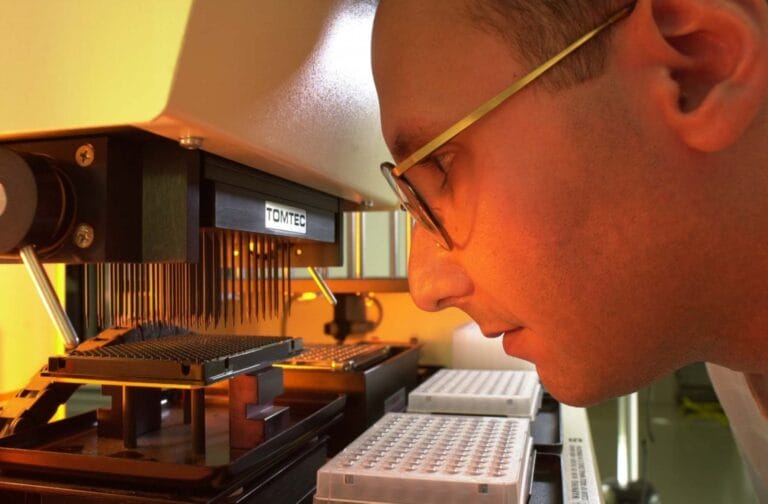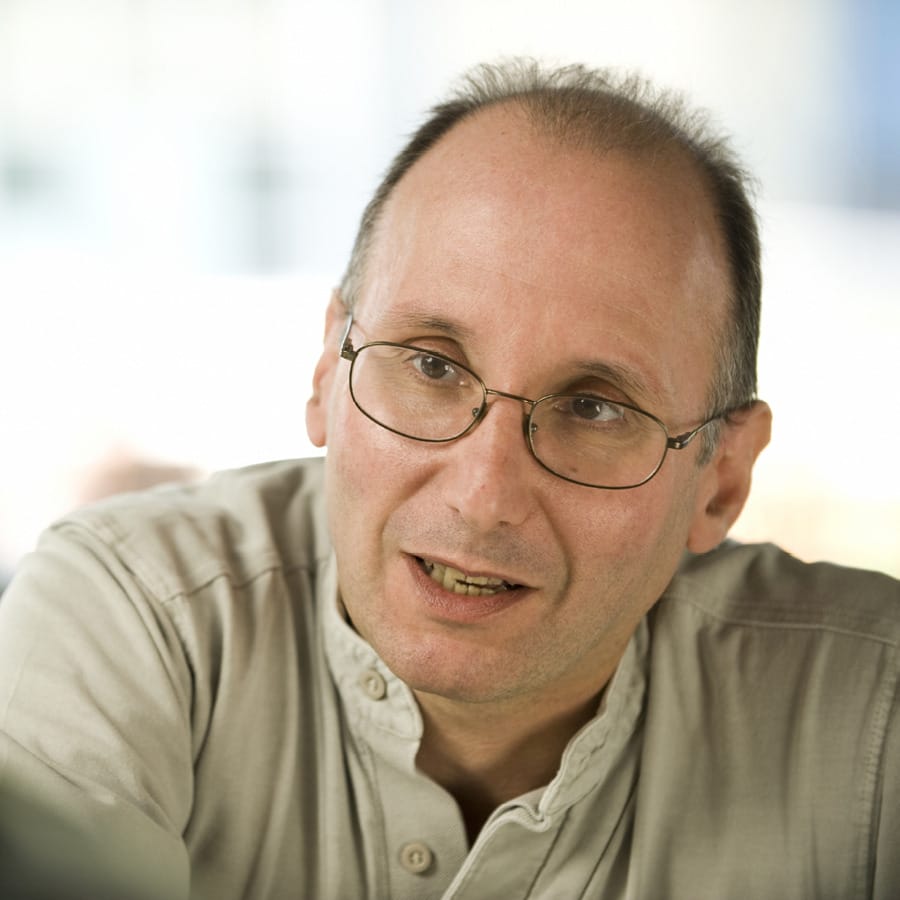Giants in genomics: Mike Stratton

Sir Mike Stratton served as the director of the Wellcome Trust Sanger Institute from 2010 to 2023. He also initiated and co-leads the Cancer Genome Project.
Key terms
Gene
A section of DNA within a genome that carries a specific set of information - often the information needed to make a protein.
Mutation
A change in the DNA sequence, which may have positive, negative or neutral effects on the organism.
Early career
Sir Mike Stratton was fascinated with biology from his teenage years, leading him to qualify in both medicine and surgery from the University of Oxford in 1982.
However, during his years as a junior doctor, he felt frustrated by the distance between his work as a clinician and his fundamental interest in the science of health and disease. He decided to train as a pathologist, which involves examining tissue under the microscope to study the development of different conditions. “Peering into this hidden world provides you with profound and powerful insights into the ways disease is generated,” Mike has described. “There is sometimes awful beauty in the way cells conspire to orchestrate life-threatening conditions.”
Mike still had the feeling he was missing out on the “real action” and decided to complete a PhD in molecular biology of cancer at the Institute of Cancer Research in London. After completing his PhD in 1989, Mike accepted a position on the faculty at the Institute of Cancer Research and began to pursue cancer genetics.
“It has become of almost mystical fascination to me that you can look down a microscope and see the misbehaving cells of a tumour,” he says.


"There is sometimes awful beauty in the way cells conspire to orchestrate life-threatening conditions."
Sir Mike Stratton
Discovering cancer genes
Mike and his team’s work during the 1980s led to the identification of two major genes that increase the risk of breast cancer when mutated: BRCA1 and BRCA2. This work enabled the development of important predictive tests that give people around the world the information they need to make informed decisions about how to manage their breast cancer risk.
Over the following years, Mike and his team uncovered further breast cancer genes and investigated those related to a whole host of other cancers, including testicular, colorectal and thyroid cancer.
By the end of the 1990s, the Human Genome Project was underway, with sections of the human genome beginning to be sequenced. Mike saw that the sequence emerging from the Human Genome Project would enable scientists to identify all cancer genes. Inspired, he proposed the Cancer Genome Project in 1999, which moved into the Wellcome Trust Sanger Institute when he joined the team in 2000.
The Cancer Genome Project quickly grew thanks to the technological advances of that time. Mike’s team moved rapidly towards their goal of producing a comprehensive catalogue of human cancer mutations. In 2002, his team described mutations in the BRAF gene and their involvement in 60% of malignant melanoma cases.

In 2002, Sir Mike Stratton and his team described mutations in the BRAF gene and their involvement in 60% of malignant melanoma cases.
The International Cancer Genome Consortium
In 2007, Mike began leading the International Cancer Genome Consortium – the first international collaboration to investigate mutations arising in different cancers. The consortium was the first to contribute full catalogues of the mutations in two cancers: small-cell lung cancer and malignant melanoma.
Mike was appointed as director to the Wellcome Trust Sanger Institute in 2010, where he served until 2023. In his role, he was committed to international collaboration and driving research to improve our understanding of health and disease and approaches to clinical practice. This included leading a global research team funded through Cancer Grand Challenges, collaborating across continents to understand the causes of cancer.
In 2008, Mike was made a Fellow of the Royal Society and, in 2013, he was awarded a knighthood in the Queen’s Birthday Honours for his services to medical sciences.
The discoveries made by Mike and his teams in the various institutes he has worked have directly improved the diagnosis, prognosis and treatment of cancer, setting the foundation for more personalised cancer treatments